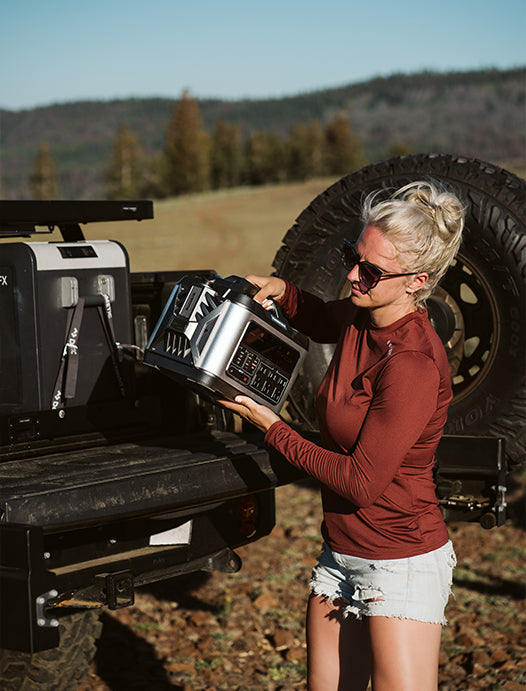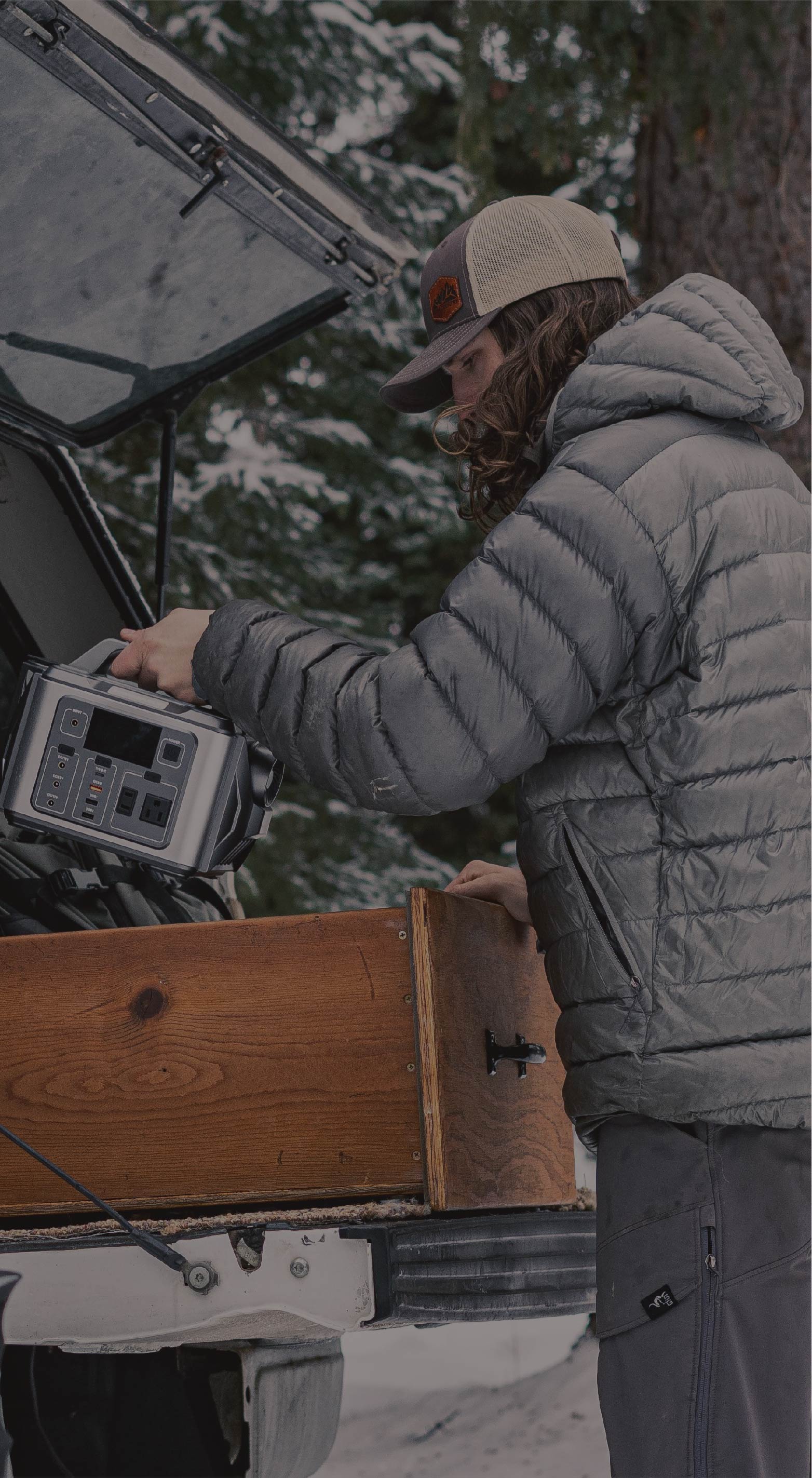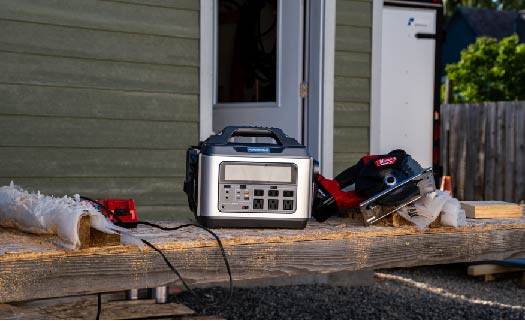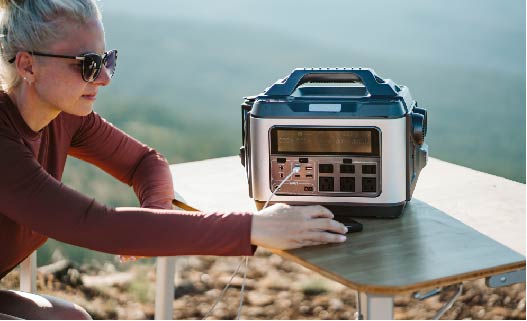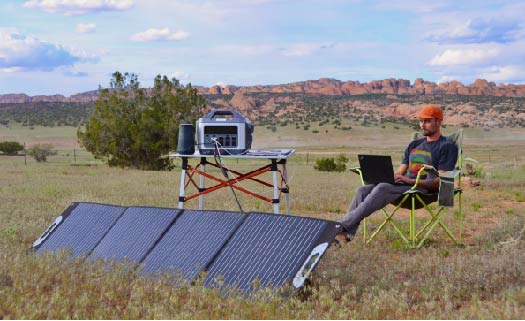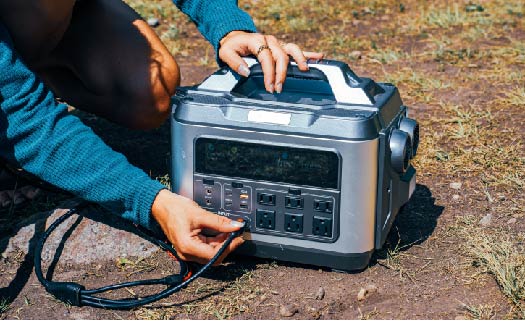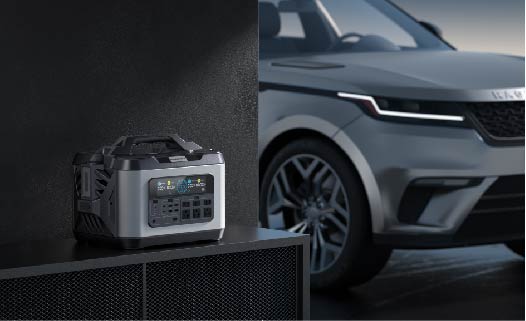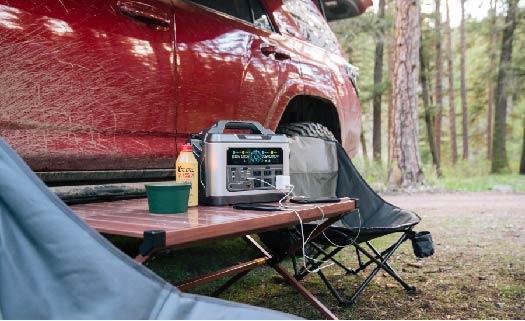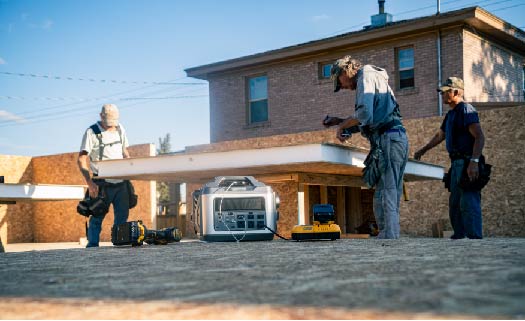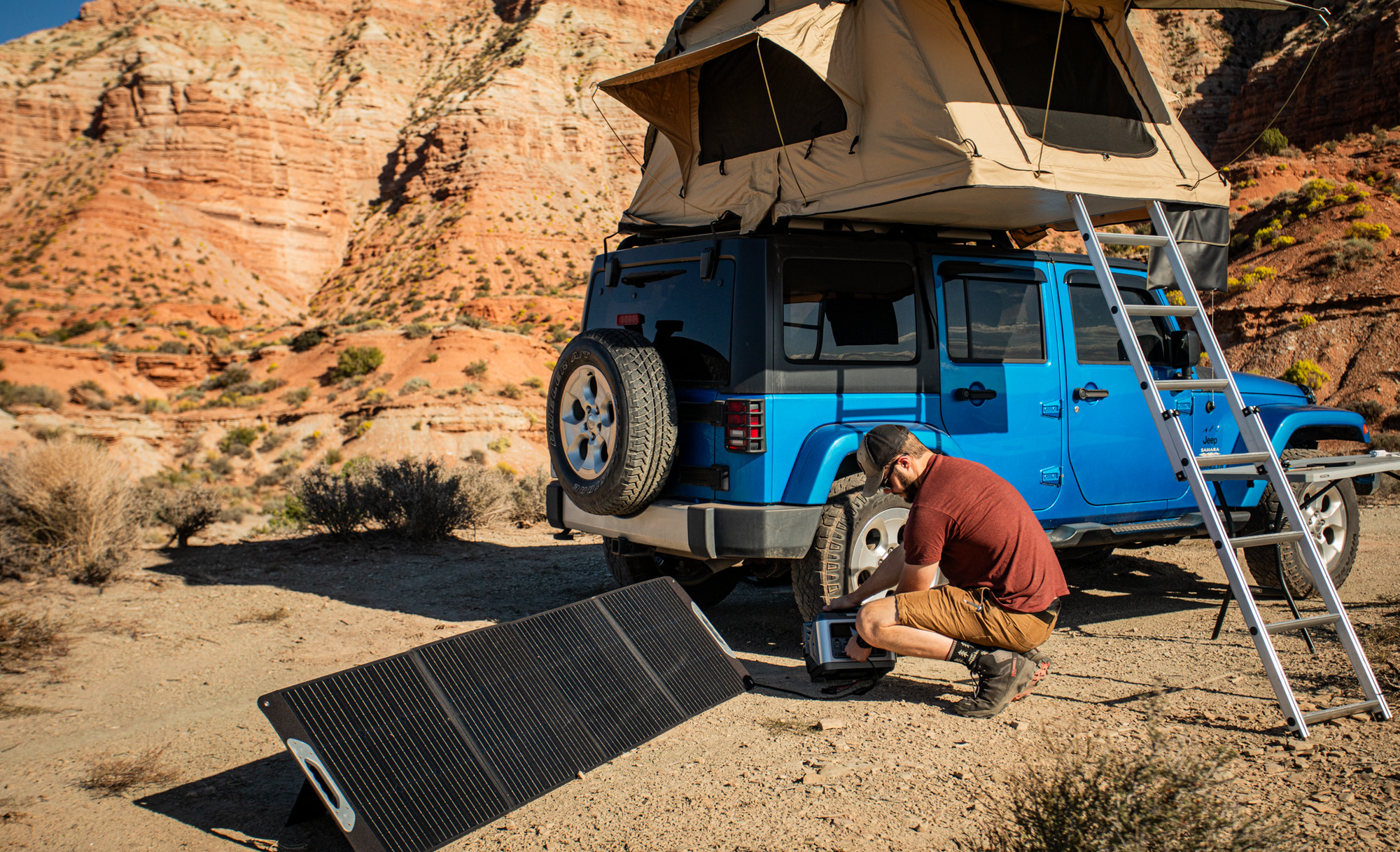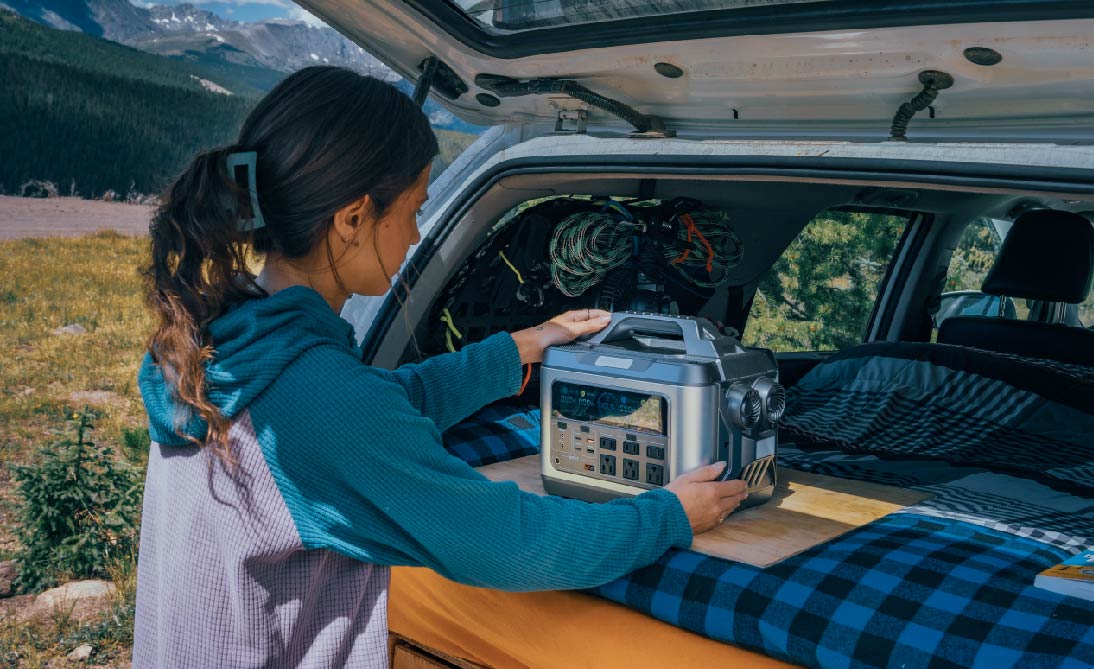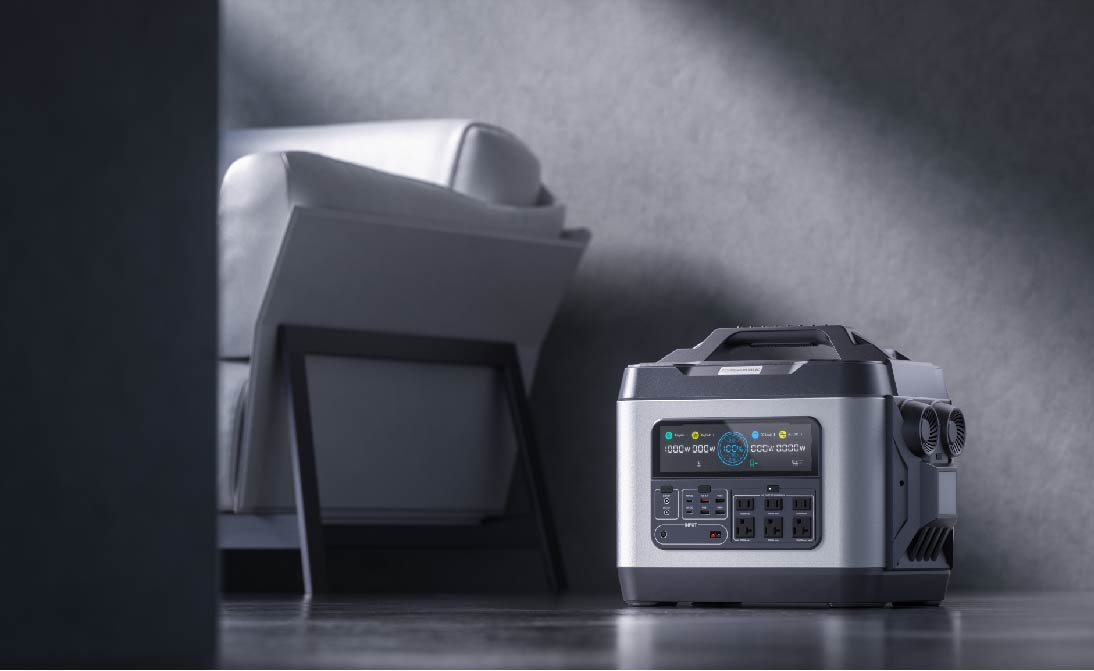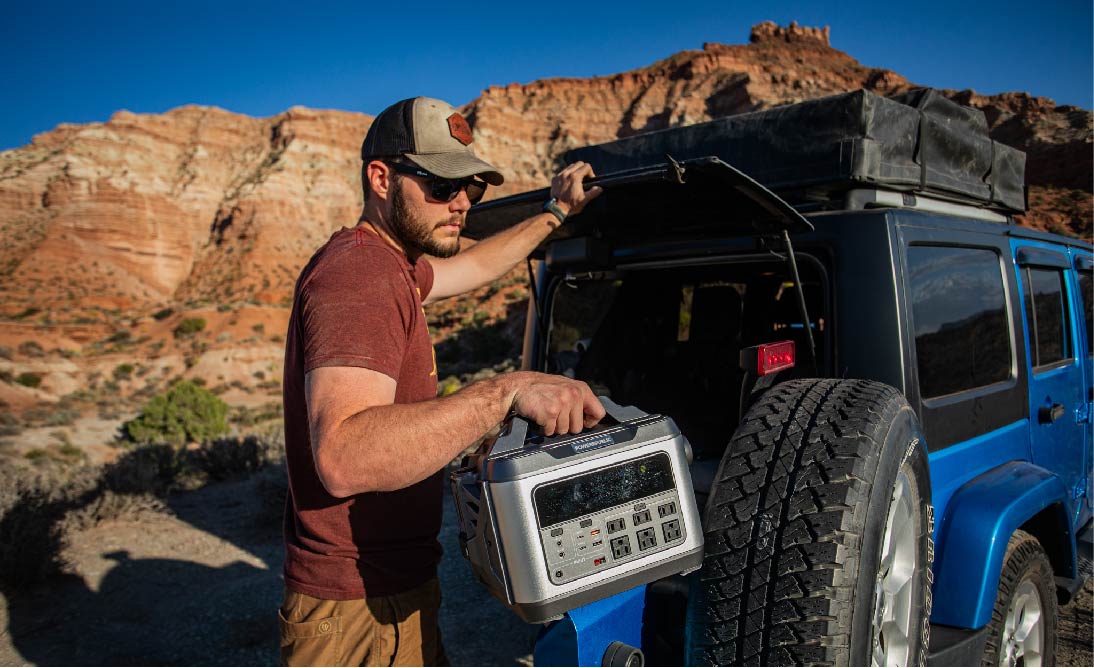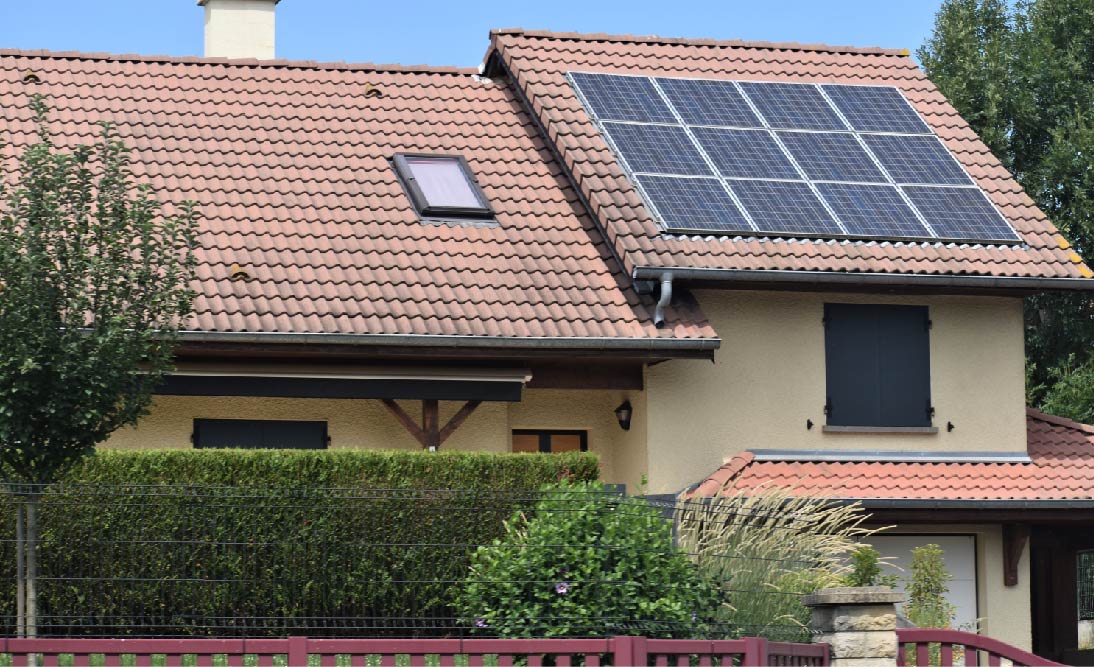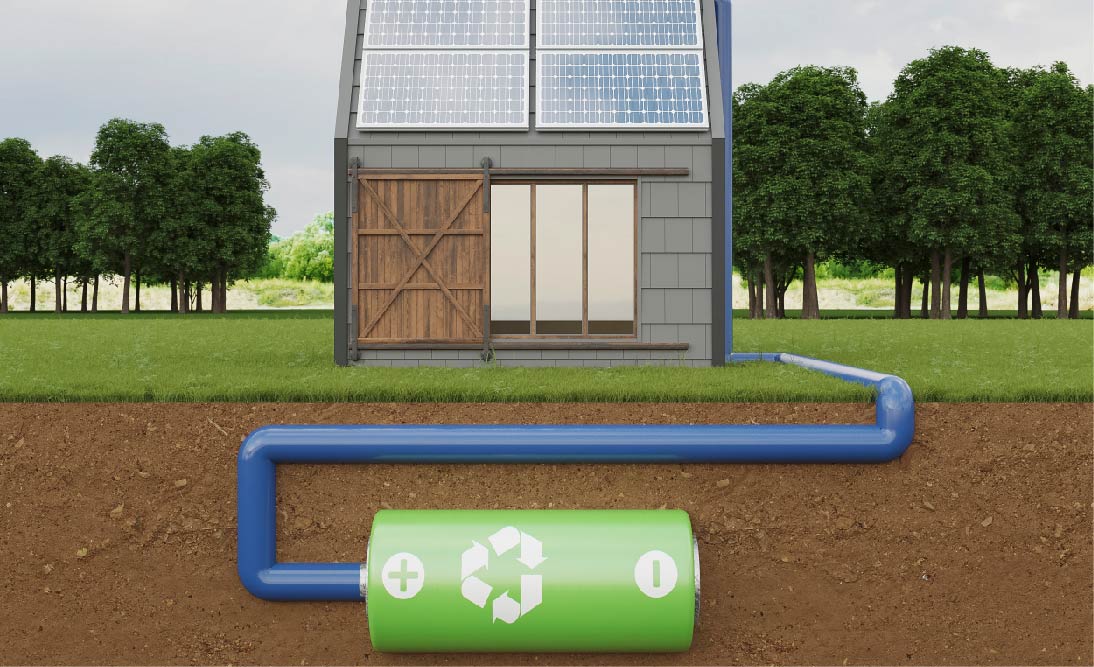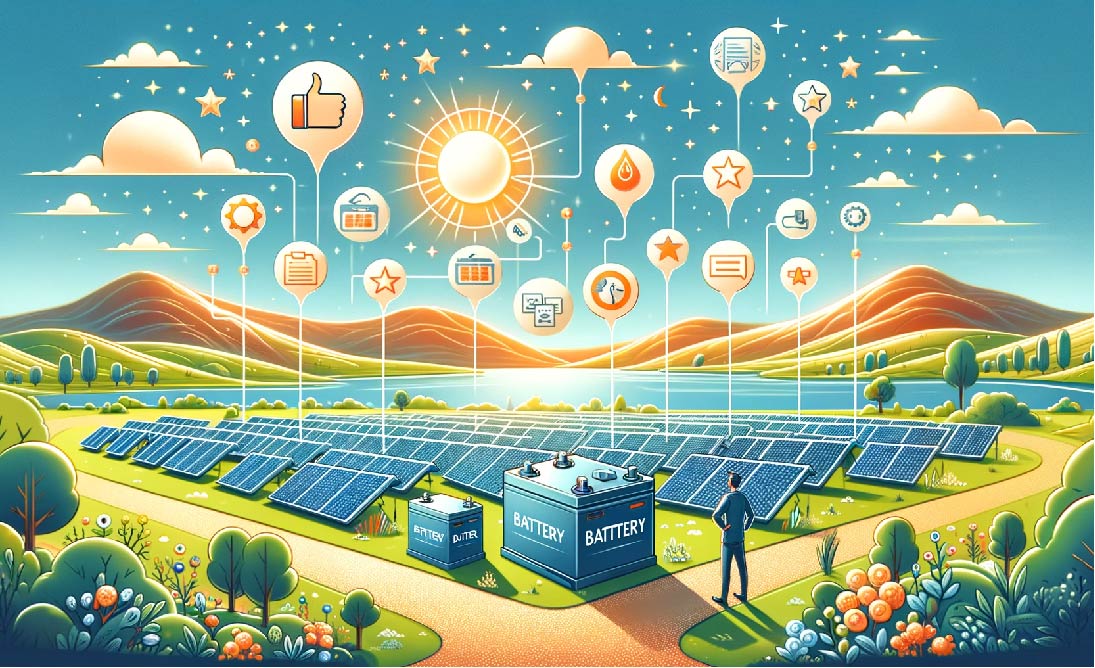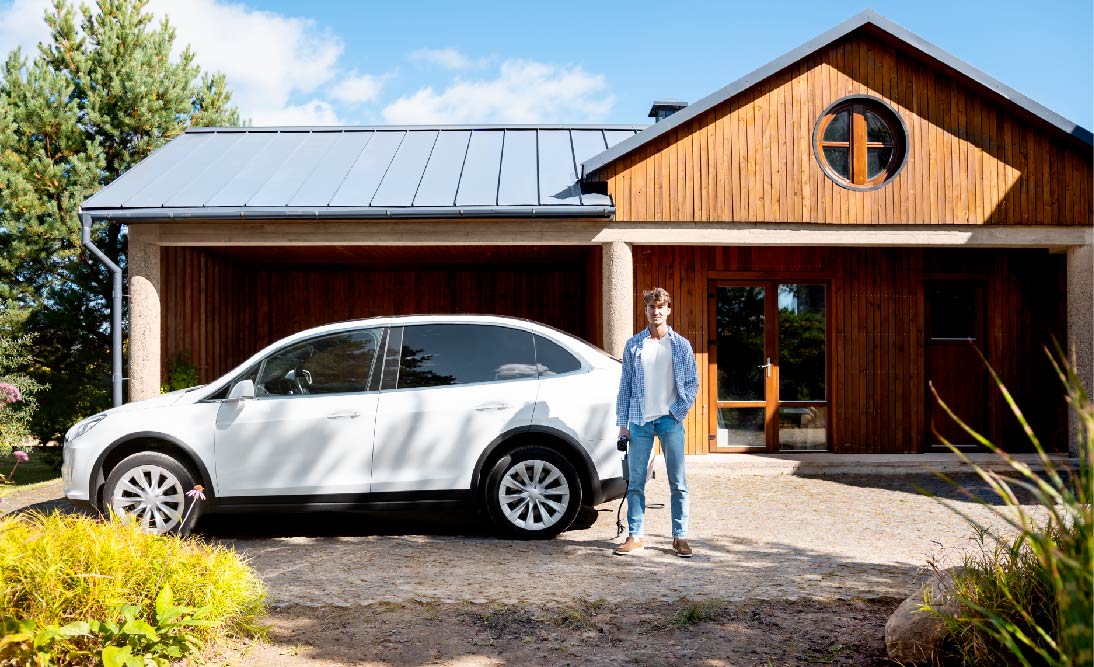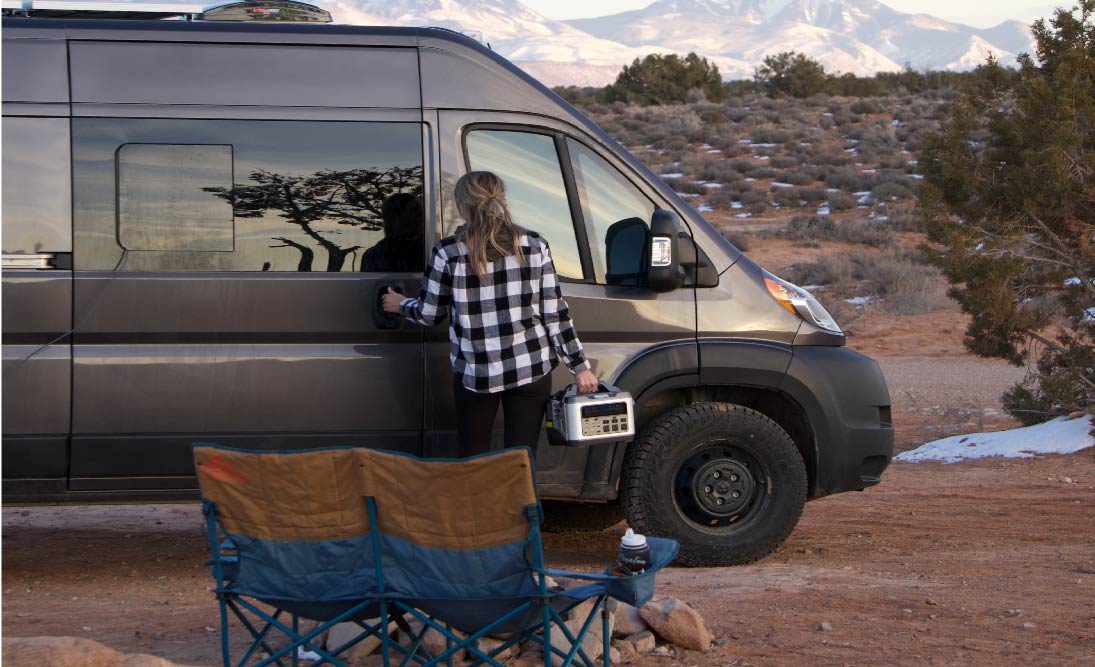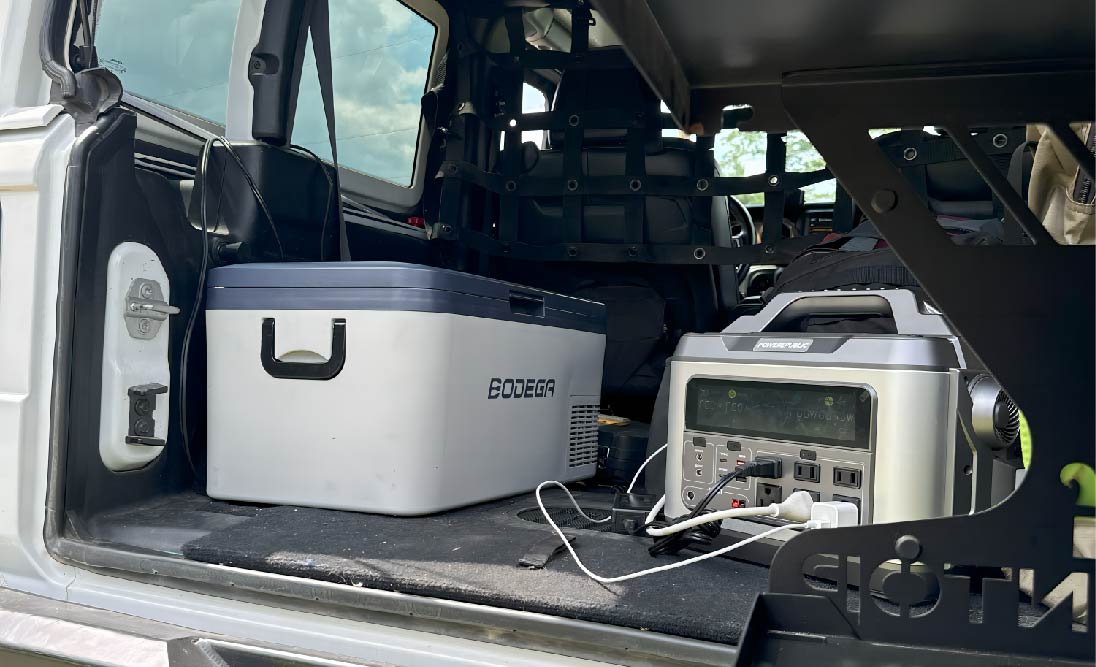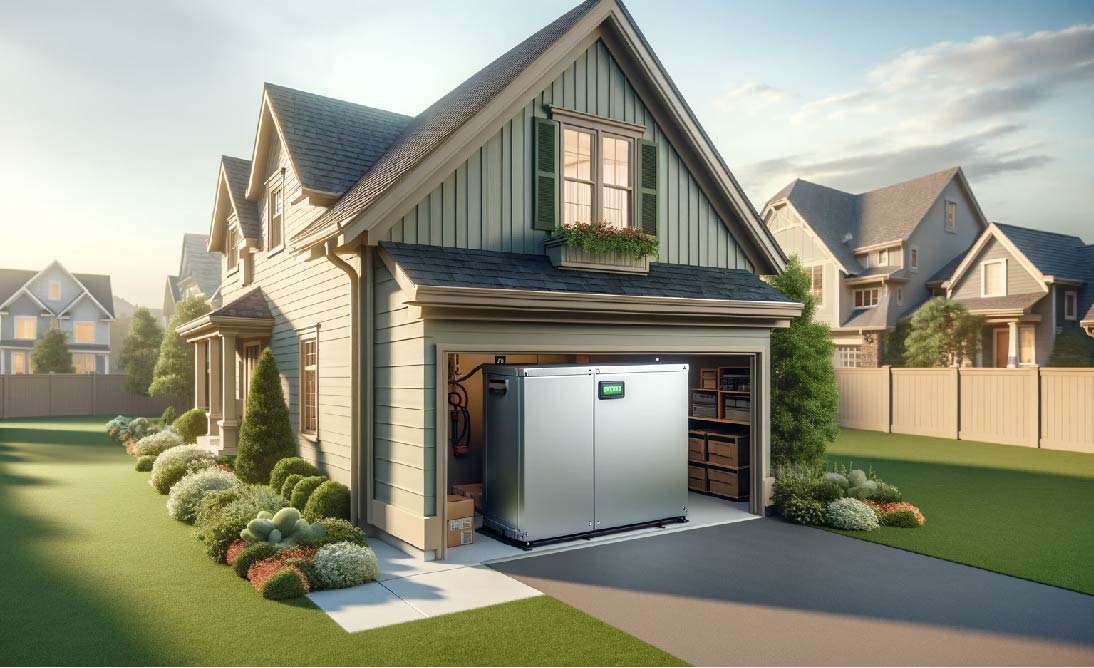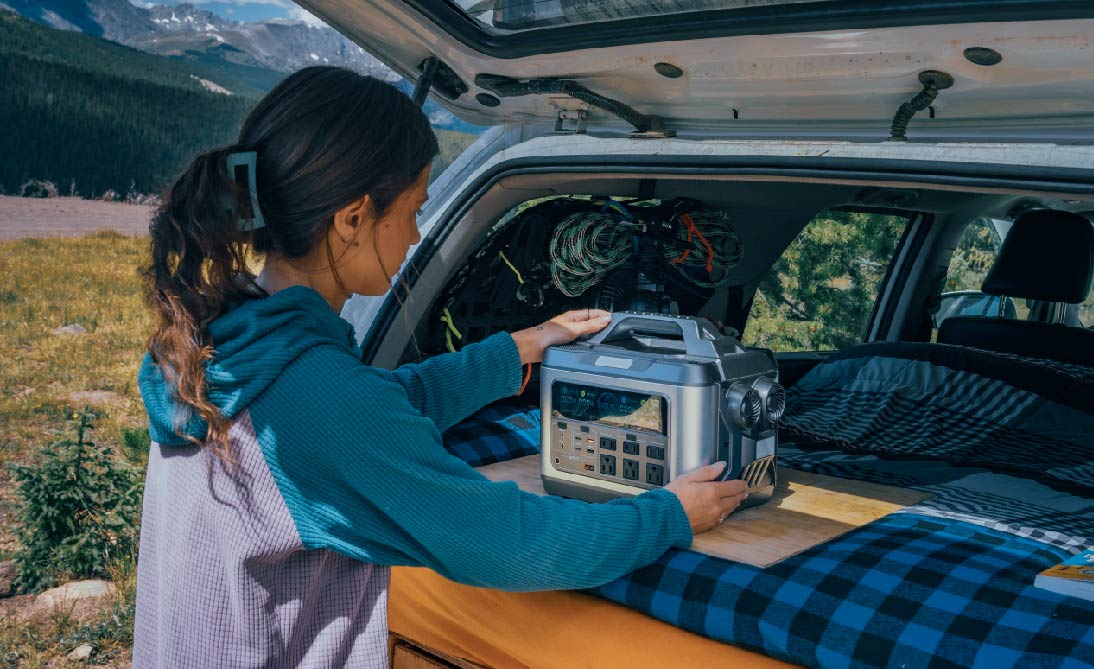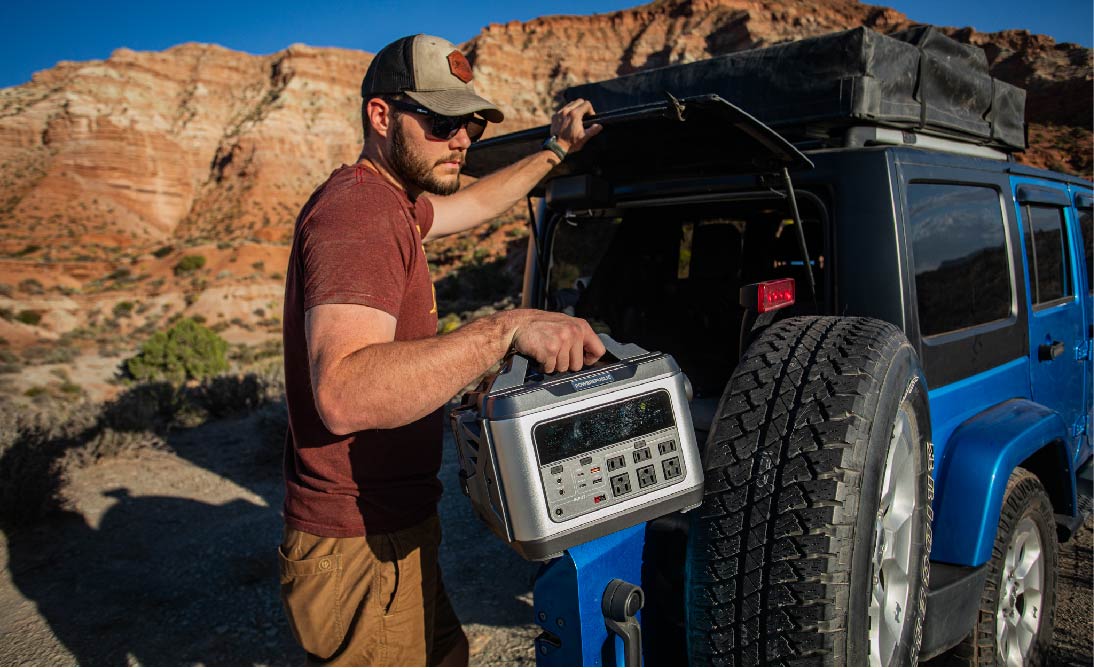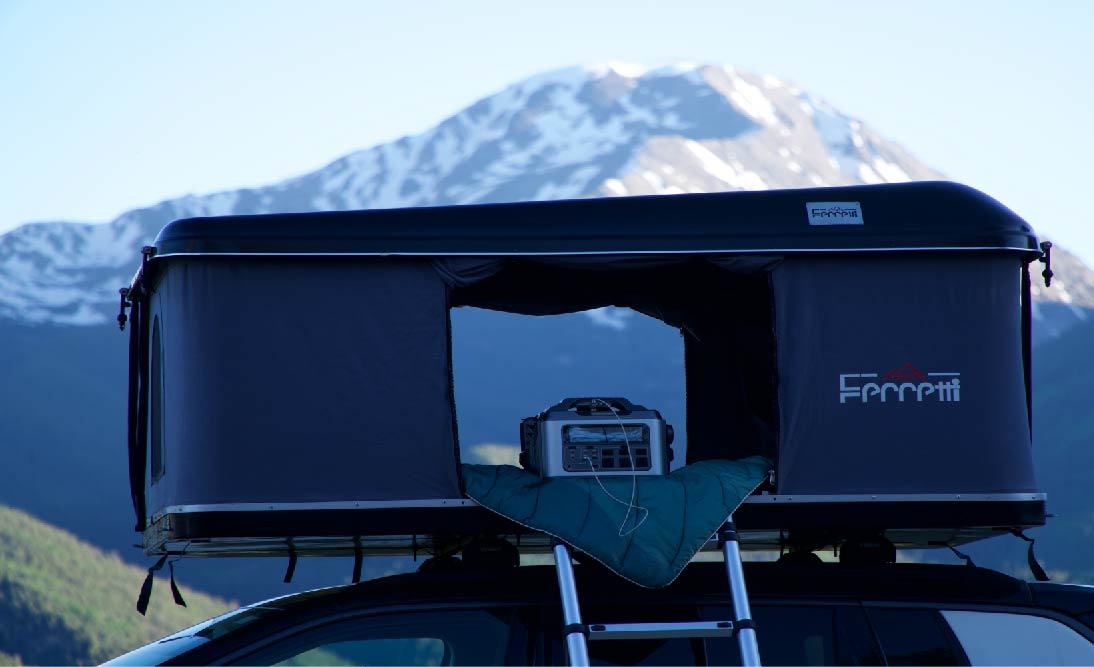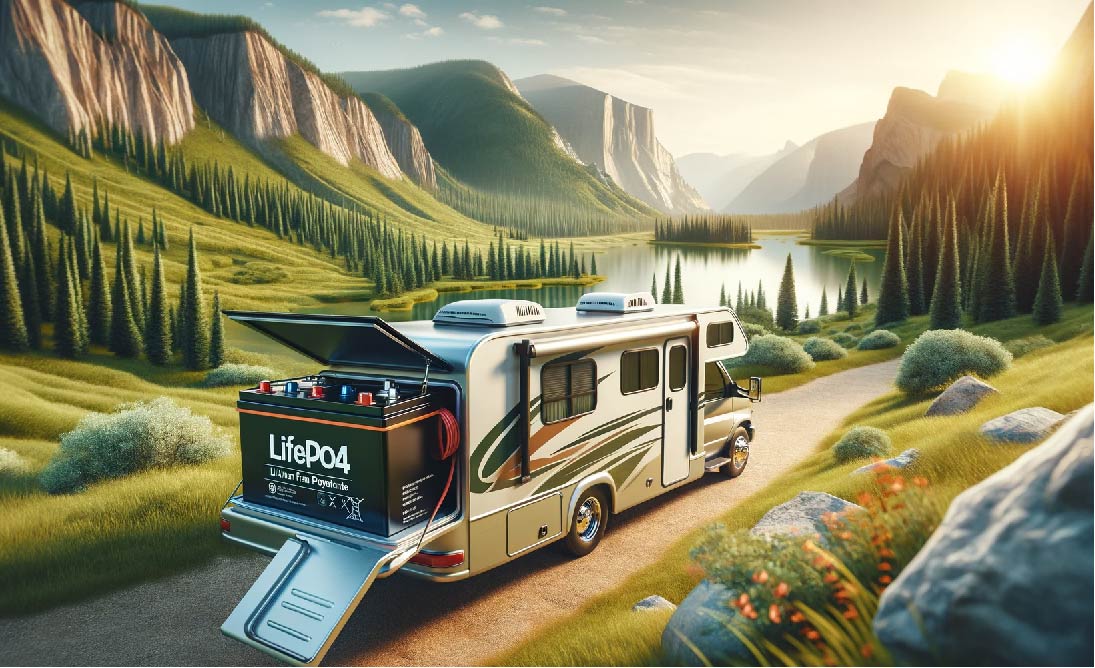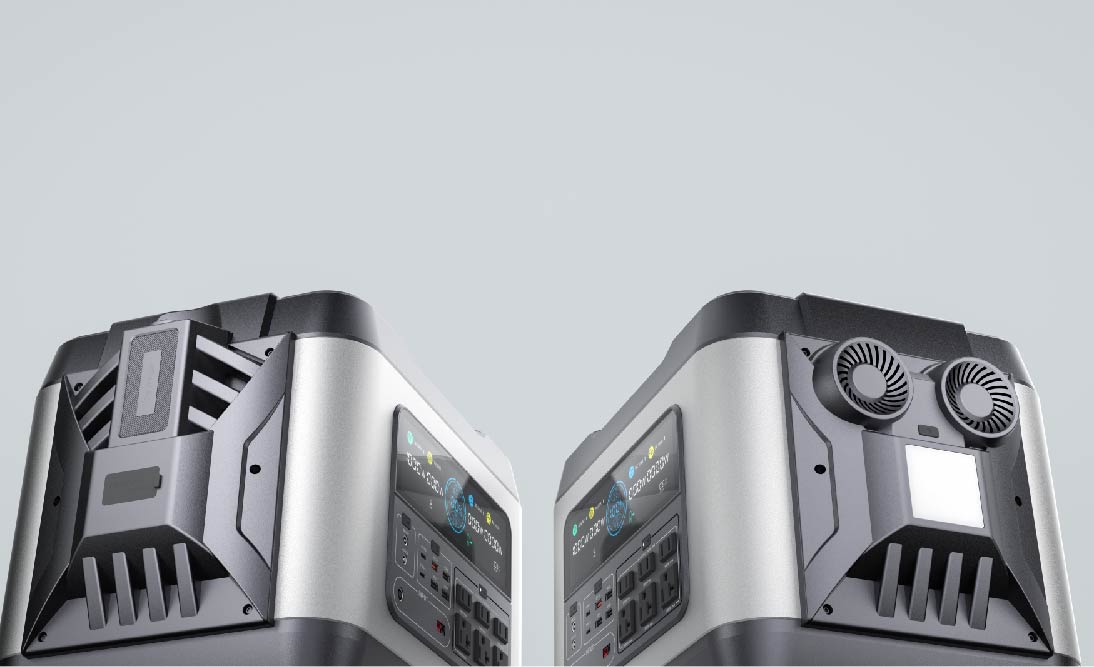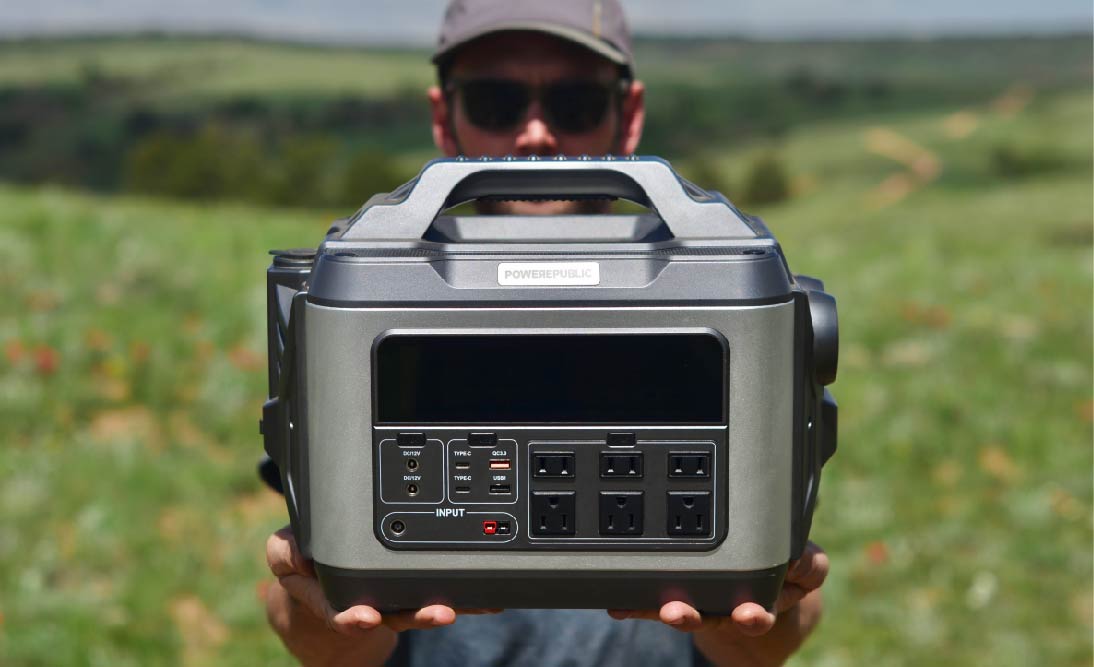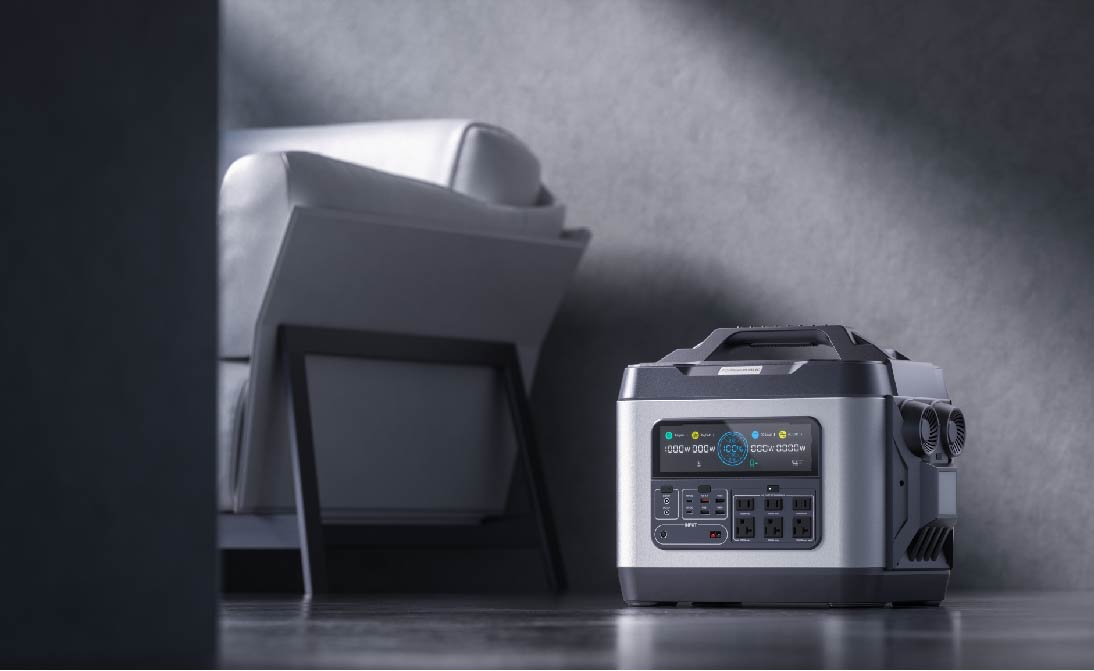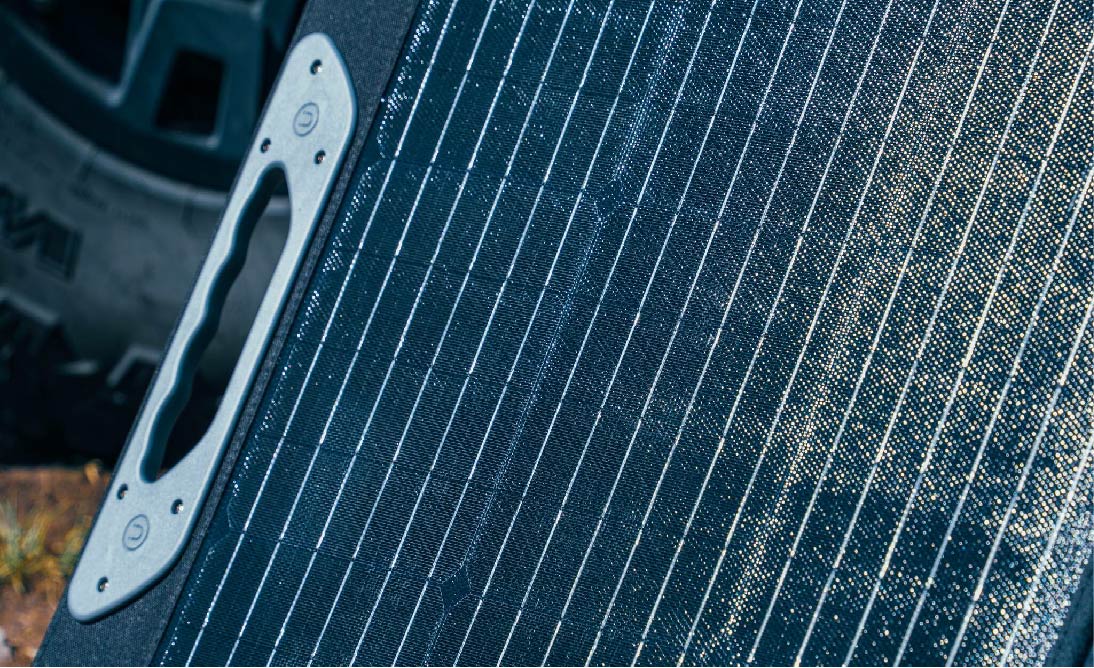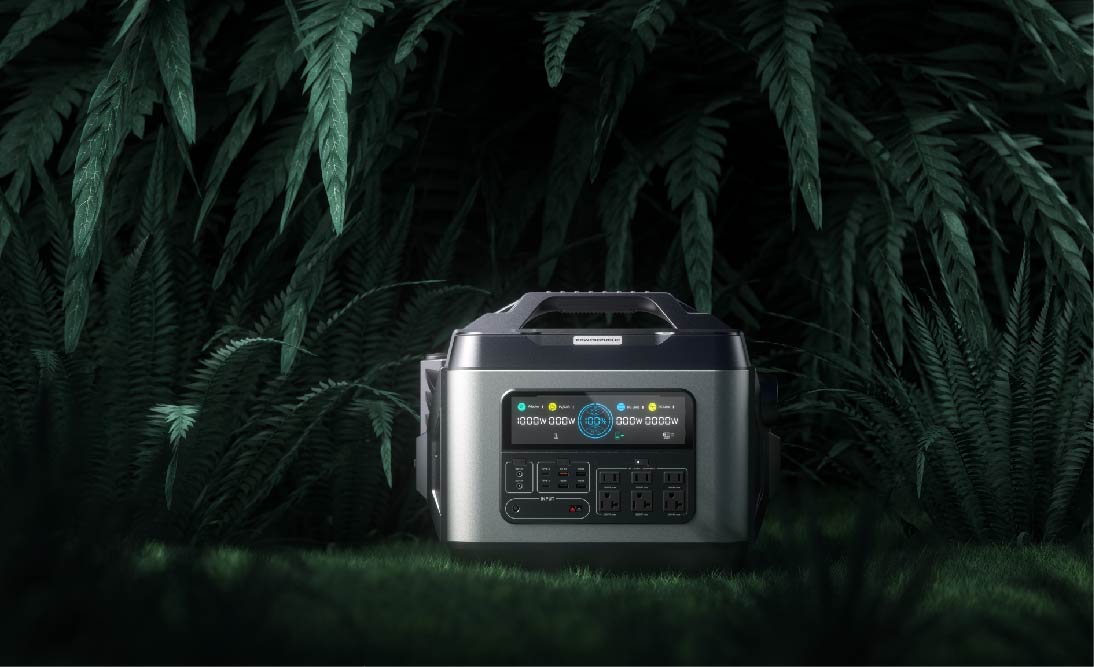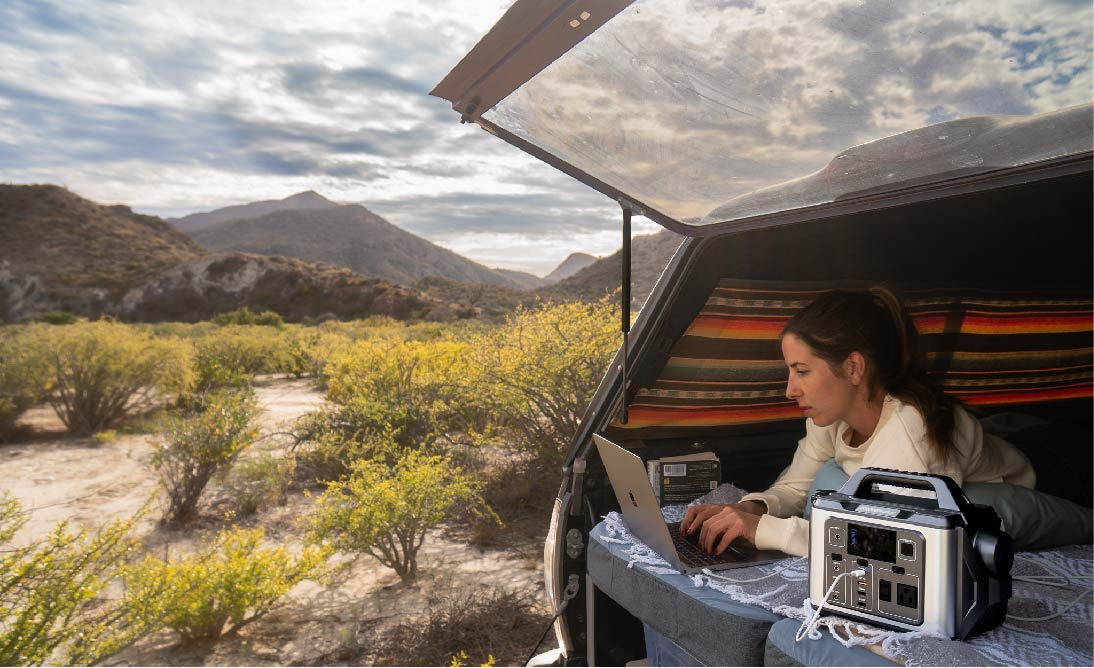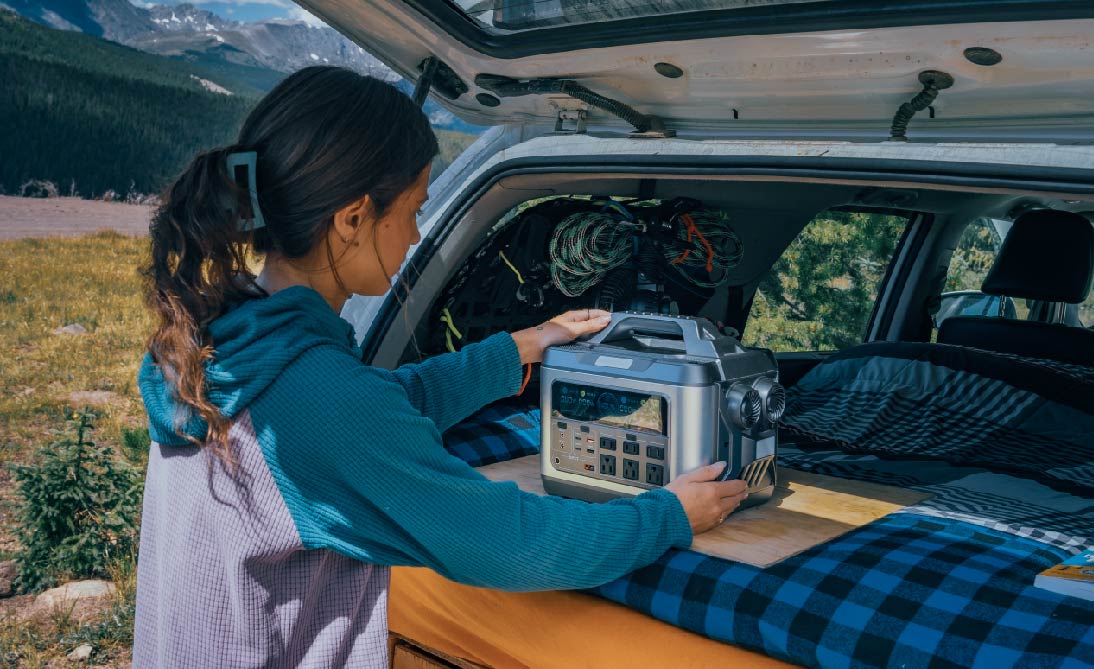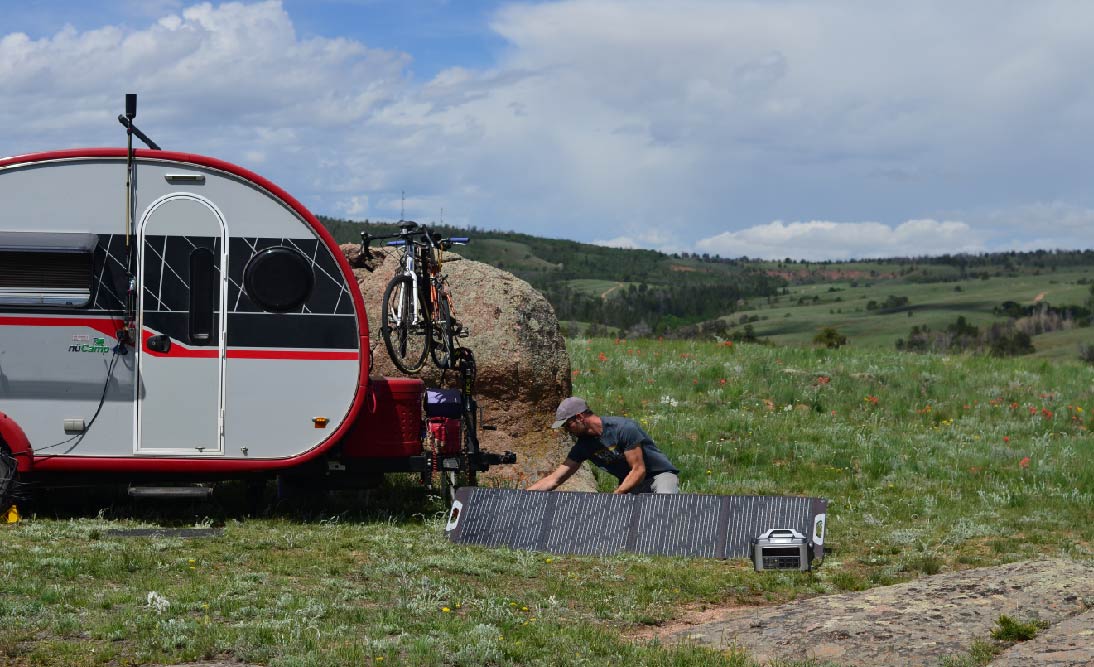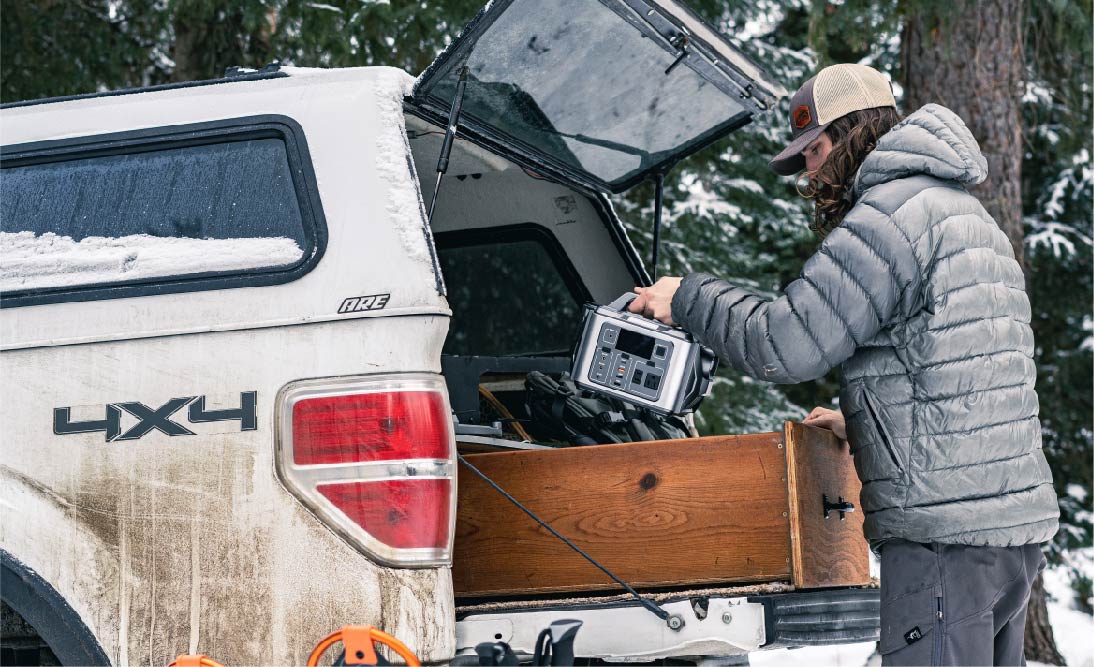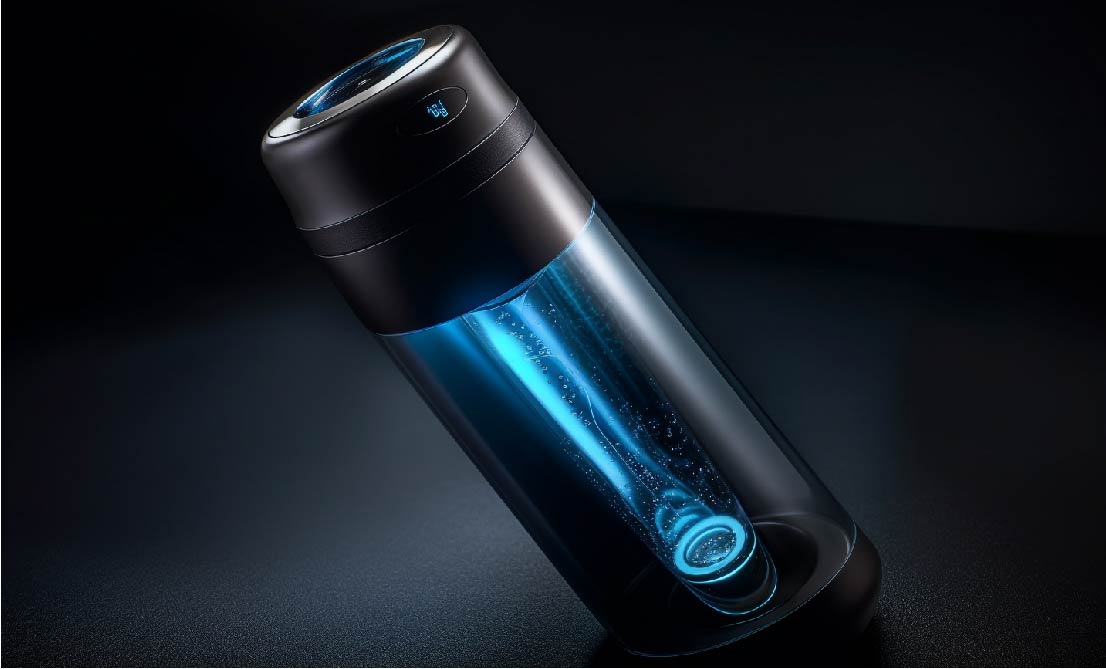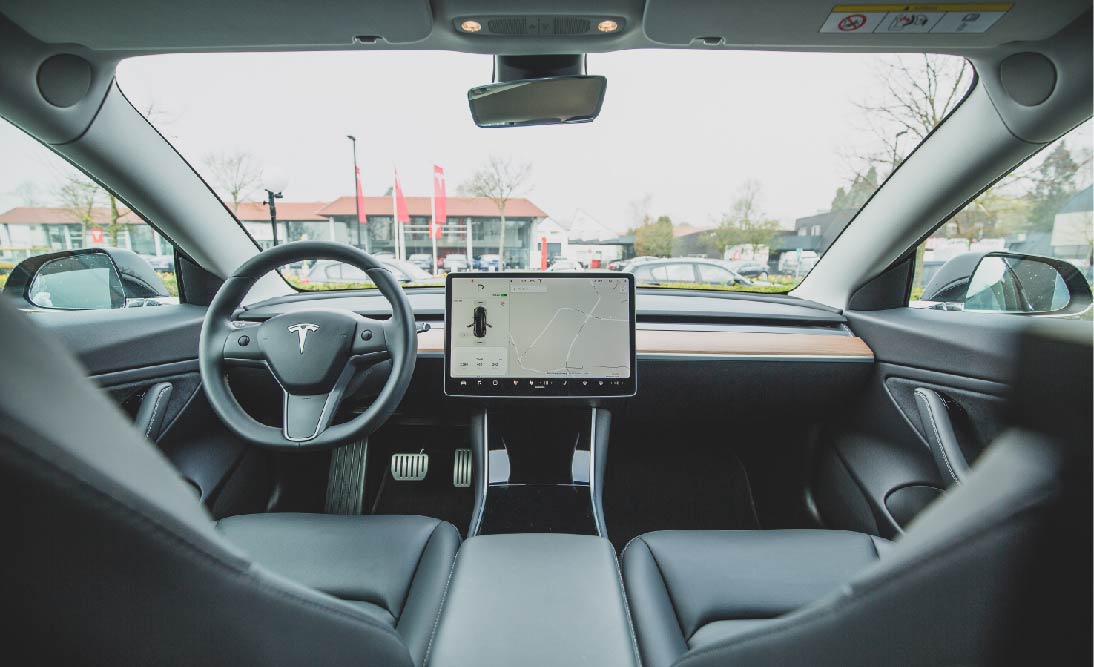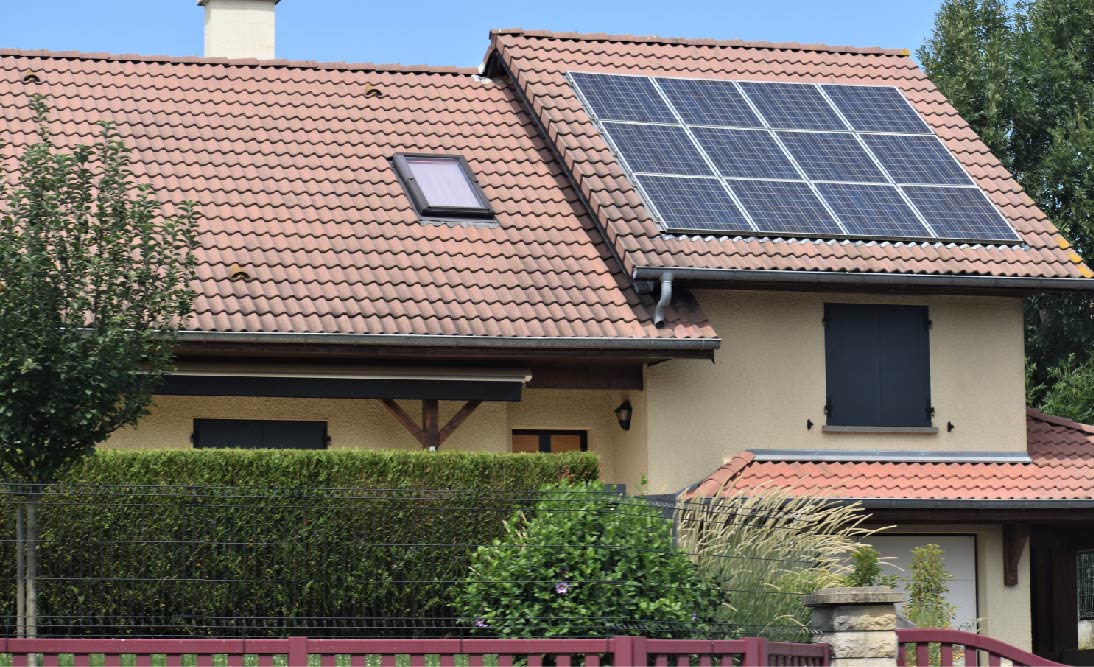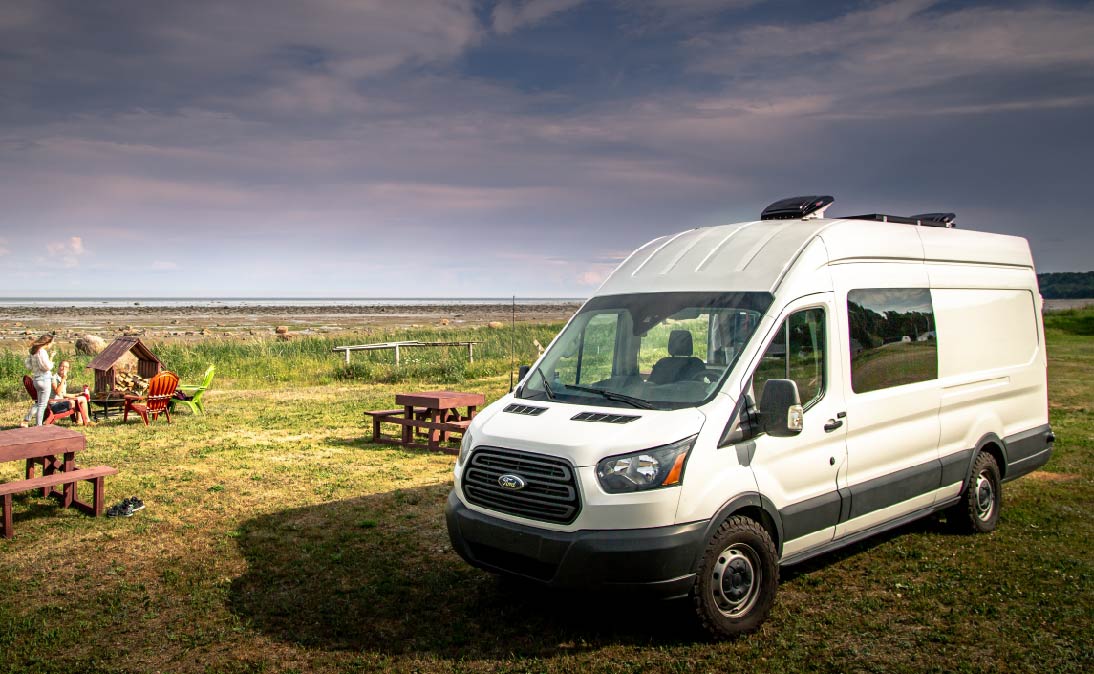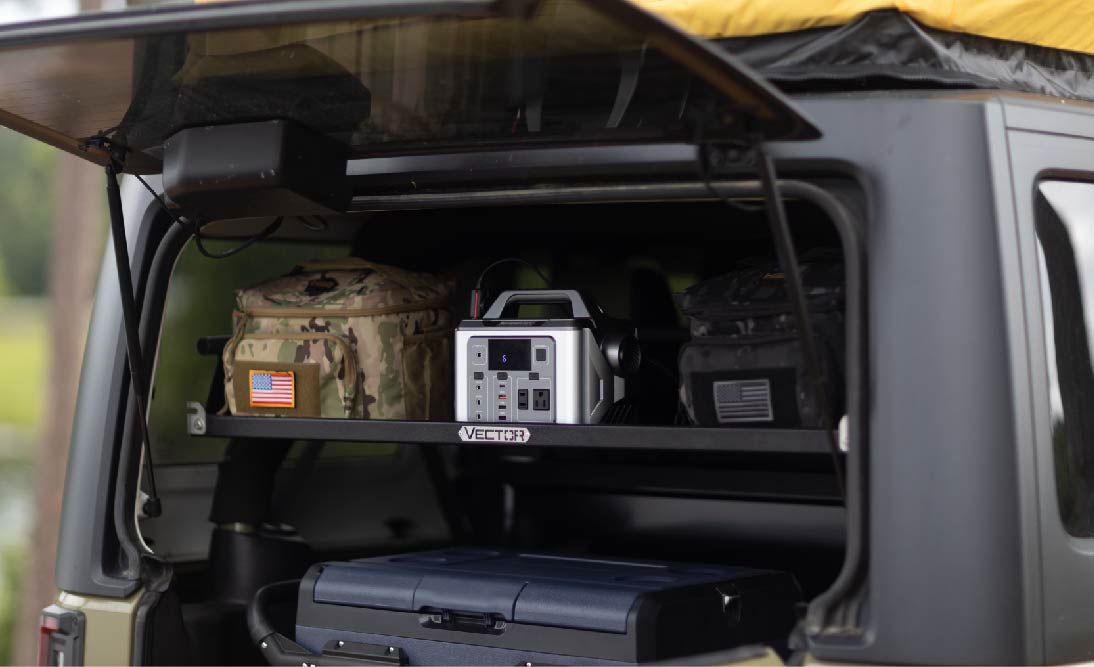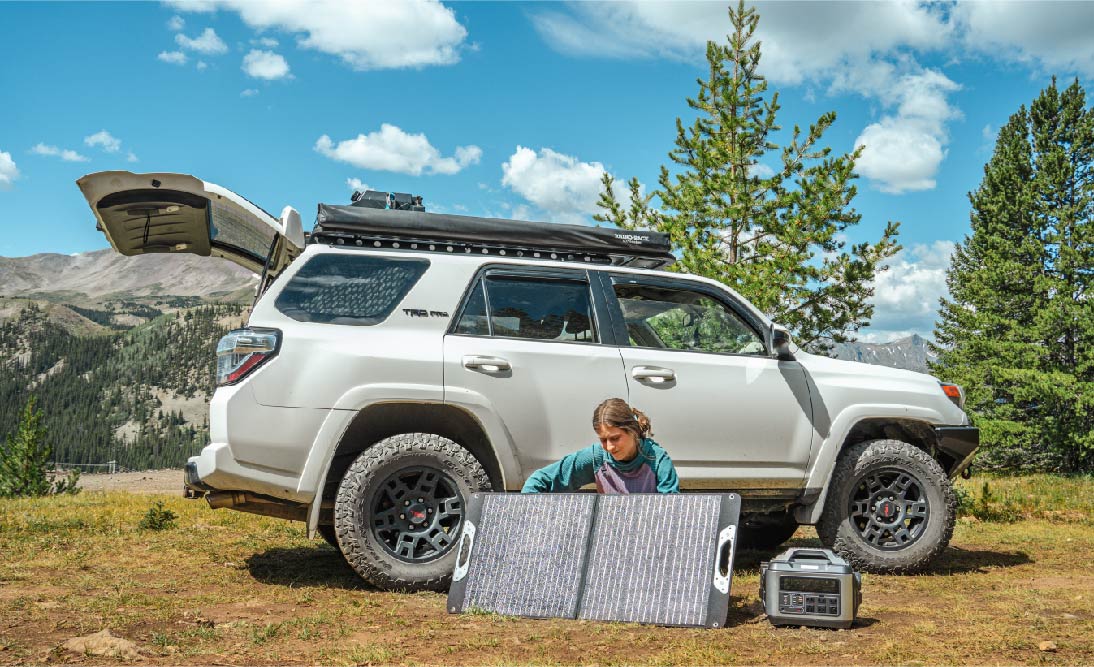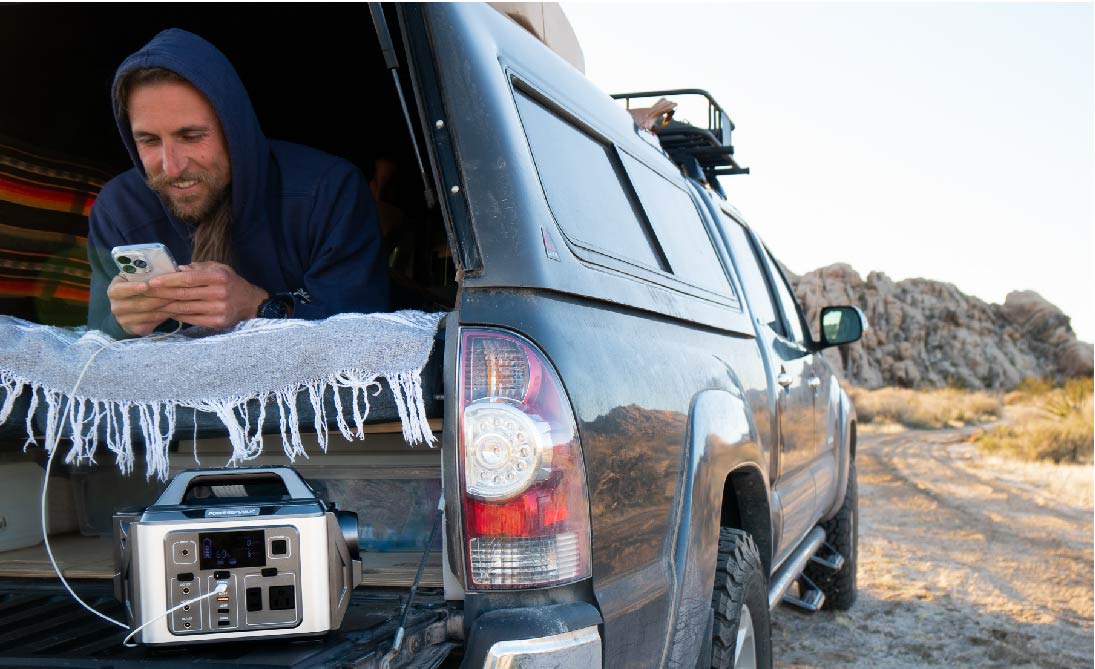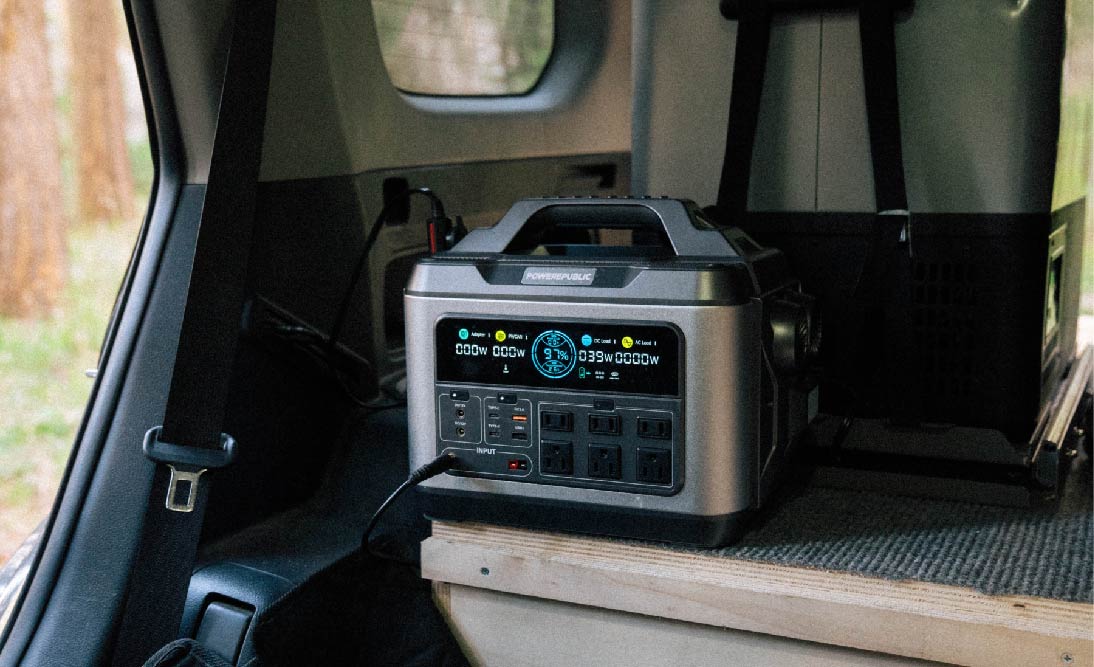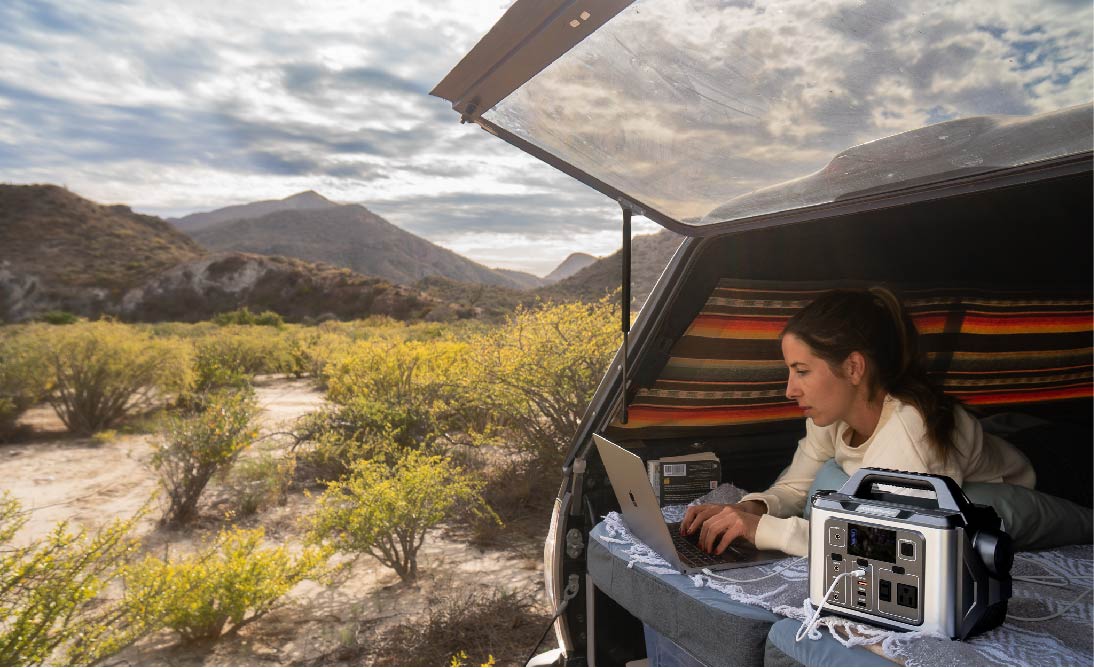Table of Contents:
Embarking on a van life journey or off-grid adventure brings the challenge of ensuring a consistent power supply, a crucial aspect for comfort and convenience on the road. A solar panel kit for a van emerges as a sustainable and efficient solution to this problem. These kits, increasingly popular among van lifers and outdoor enthusiasts, transform vans into self-reliant, mobile power hubs. However, selecting the right kit requires careful consideration of your specific energy needs, space constraints, budget, and technical know-how. This comprehensive guide delves into the intricacies of solar panel kits for vans, from understanding how they work and their benefits and limitations, to choosing the right components and setup for your van.
We also explore the robust offerings of POWEREPUBLIC solar generator kits and address key FAQs, including the lifespan of solar panels, waterproofing concerns, and the usage duration of portable power stations. This guide is tailored to empower you with the knowledge needed to make an informed decision, ensuring that your van is equipped with a reliable and eco-friendly power source for all your travels.
What is a Solar Panel Kit For Van?

A solar panel kit for a van typically includes everything needed to install and use solar panels on a van, turning it into a mobile power source. This is particularly popular among van lifers, RV enthusiasts, and those who enjoy off-grid adventures. The key components usually include:
-
Solar Panels: These are the primary components that convert sunlight into electricity. They come in various sizes and wattages, depending on the power requirements of the van.
-
Charge Controller: This device regulates the voltage and current coming from the solar panels to the battery, preventing overcharging and damage.
-
Battery Bank: Batteries store the electricity generated by the solar panels for later use. The size and capacity of the battery bank depend on the energy needs.
-
Inverter: An inverter converts the DC electricity stored in the batteries into AC electricity, which is necessary to power standard electronic appliances and tools.
-
Mounting Hardware: This includes brackets, screws, and other materials needed to securely mount the solar panels to the roof of the van.
-
Wiring and Connectors: These are necessary for connecting all components safely and efficiently.
-
Installation Manual: Most kits come with a manual or guide that provides instructions on how to install and set up the system.
This kit allows van owners to generate their electricity, reducing reliance on external power sources and enabling more self-sufficient travel, especially in remote areas where power hookups are unavailable. The size and capacity of the solar panel kit will vary based on the power needs and the available space on the van.
How Does a Solar Panel Kit Work?

A solar panel kit works by converting sunlight into electrical energy, providing a renewable and eco-friendly power source. Here's a step-by-step breakdown of how it functions:
-
Absorption of Sunlight: The solar panels in the kit contain photovoltaic (PV) cells. These cells are designed to absorb sunlight. When sunlight hits these cells, it knocks electrons loose from their atoms, which initiates the flow of electricity.
-
Conversion of Solar Energy: The energy from the sun, in the form of photons, is converted into direct current (DC) electricity by the PV cells. Each cell generates a small amount of electricity, so multiple cells are combined in a panel, and multiple panels can be connected to increase power output.
-
Regulating the Charge: The DC electricity flows from the solar panels to a charge controller. The charge controller's role is crucial as it regulates the voltage and current coming from the panels, ensuring that the batteries are charged at the correct rate. This prevents overcharging or damage to the batteries.
-
Storing Energy in Batteries: The regulated electricity is then directed to the battery bank, where it is stored for later use. The size of the battery bank will affect how much power can be stored.
-
Converting to Usable Power: When you need to power AC (alternating current) devices, the stored DC power in the batteries needs to be converted. This is where the inverter comes in. The inverter converts the DC electricity from the batteries into AC electricity, which is the standard form used by most household appliances and devices.
-
Power Distribution: Once converted to AC, the electricity can be used to power various devices and appliances in the van, such as lighting, laptops, small refrigerators, and chargers.
-
Monitoring and Management: Many solar panel kits come with monitoring systems that allow you to check the status of your solar power system. This includes the amount of power being generated, the charge level of the batteries, and the current power consumption.
Overall, a solar panel kit allows for the harnessing of solar energy to provide a reliable and sustainable power source for various needs, especially useful in remote or off-grid situations like camping or living in a van.
Benefits and Limitations of a Solar Panel Kit for Van

Solar panel kits for vans offer numerous benefits, especially for those embracing a mobile lifestyle, but they also come with certain limitations. Here's an overview:
Benefits of a Solar Panel Kit for Van
-
Eco-Friendly: Solar power is a clean, renewable energy source. Using a solar panel kit reduces reliance on fossil fuels and decreases carbon footprint.
-
Energy Independence: Solar panels provide a self-sufficient source of electricity. This is particularly advantageous for travelers who spend time in remote areas without access to traditional power sources.
-
Cost-Effective in the Long Run: After the initial investment, solar energy is free. It can significantly reduce or even eliminate the need to pay for electricity or generator fuel.
-
Low Maintenance: Solar panels require minimal maintenance, mostly cleaning and occasional checks to ensure connections are secure.
-
Quiet Operation: Unlike generators, solar panels operate silently, which is ideal for enjoying the tranquility of natural surroundings.
-
Expandable: Many solar kits allow for expansion. You can start with a smaller setup and add more panels later as your energy needs increase.
Limitations of a Solar Panel Kit for Van
-
Initial Cost: The upfront cost of purchasing and installing a solar panel kit can be high, although prices have been decreasing over the years.
-
Weather Dependent: Solar panel efficiency significantly drops on cloudy or rainy days. In areas with less sunshine, generating sufficient power can be challenging.
-
Space Requirements: Vans have limited roof space, which restricts the size and number of solar panels that can be installed, thereby limiting the total power output.
-
Energy Storage Limitations: The capacity of batteries dictates how much energy can be stored. High-capacity batteries are expensive and add weight to the van.
-
Technical Knowledge: Installation and maintenance of a solar system require some technical knowledge. Improper installation can lead to inefficiencies or damage.
-
Power Limitations: The amount of power that can be generated and stored may not be sufficient for high-energy-consuming appliances like air conditioners or large refrigerators.
While solar panel kits for vans offer a sustainable and increasingly accessible way to generate power, considerations regarding cost, climate, space, and power needs are essential when deciding if this solution is right for your van's lifestyle.
How To Choose The Right Solar Panel Kit for Van?

Selecting the right solar panel kit for your van involves considering several factors such as your energy needs, the available space for panels, budget, and the specific conditions in which you'll be using the kit. Here's a guide with calculations and examples to help you make an informed decision:
1. Assess Your Energy Needs
-
Calculate Daily Power Consumption: List all the electronic devices you plan to use (e.g., lights, fridge, laptop, fan) and calculate their total daily power consumption.
-
Example: If you have a fridge that consumes 50Wh per hour and runs 24 hours, a laptop using 60Wh per hour for 5 hours, and LED lights consuming 10Wh for 5 hours, your daily consumption would be: Fridge: 50Wh x 24h = 1200Wh, Laptop: 60Wh x 5h = 300Wh, Lights: 10Wh x 5h = 50Wh, Total = 1550Wh/day
2. Evaluate Solar Panel Output
-
Check Average Sunlight Hours: Research the average number of sunlight hours per day in the areas you'll be traveling.
-
Calculate Required Solar Panel Wattage: Divide your total daily consumption by the average sunlight hours to get the required solar panel wattage.
-
Example: If you're in an area with an average of 5 sunlight hours per day: Required Wattage = 1550Wh / 5h = 310W
3. Consider Battery Storage
-
Calculate Battery Capacity: You'll need a battery bank capable of storing at least one to two days' worth of electricity, especially for cloudy days.
-
Example: For 2 days' storage of 1550Wh/day: Required Battery Capacity = 1550Wh x 2 = 3100Wh or 3.1kWh
4. Space Constraints on Your Van
-
Measure Available Space: Assess the roof space of your van to determine how many and what size of panels can be fitted.
-
Panel Size and Output: Choose panels that fit within this space and meet your energy requirements.
5. Budget Considerations
-
Compare Costs: Solar panel kits come in various price ranges. Balance your budget with the quality and capacity of the kit.
6. Additional Components
-
Inverter Size: Ensure the inverter can handle the peak load of your devices.
-
Charge Controller: Should be compatible with your solar panel’s output and battery type.
7. Quality and Durability
-
Research Brands: Look for reliable and well-reviewed solar panel brands.
-
Check Warranties: Opt for products with good warranty periods.
8. Example Scenario
-
Van Space: 20 square feet available for panels.
-
Energy Needs: 1550Wh/day.
-
Sunlight Hours: 5 hours/day.
-
Budget: Medium range.
-
Solution: You might opt for two 160W panels (totaling 320W) which fit on your van's roof. For batteries, a 200Ah deep cycle battery (or equivalent lithium battery) could suffice. Ensure your inverter and charge controller are compatible with these specifications.
Choosing the right solar panel kit for your van is a balance between your power needs, available space, budget, and the conditions you'll be traveling in. Accurate calculations and careful product selection are key to ensuring a reliable and efficient solar setup for your van life adventures.
POWEREPUBLIC Solar Panel Kit for Van

For van lifers and campers who are new to solar technology and looking for an easy solution, consider the POWEREPUBLIC T1200 and T2200 solar generator kits. These kits simplify the process by eliminating the need to determine the sizes of inverters, charge controllers, or batteries. All you need to do is assess your power requirements and how long you want to run your devices. Then, compare whether the POWEREPUBLIC solar generator kits meet those requirements.
For a comprehensive understanding of the T1200 and T2200 solar generator kits' capabilities, please refer to the table below, which outlines their features and estimated working times.
|
Models |
Specifications |
Est.Working Time(hours) |
|
POWEREPUBLIC T1200+PV100 & T1200+PV200 Solar Generator Kits |
1200W/1110Wh, 2600W Surge Power Lithium-ion Battery 13 Different Output Ports LCD Screen For Monitoring LED Light On The Side Aluminum Alloy Body Compatible With Solar Panels(230W Max) |
Laptop (45-85W): 11 to 21 hours Mini Refrigerator (60-100W): 9.5 to 15.5 hours Microwave Oven (600-1200W): 0.5 to 1.5 hours Portable Heater (750-1500W): 0.5 to 1 hour Air Conditioner (800-1500W): 0.5 to 1 hour Coffee Maker (600-1200W): 0.7 to 1.5 hours Electric Stove (1000-1500W): 0.5 to 1 hour Smartphone Charger (5-18W): 52 to 188.5 hours Fan (20-60W): 15.5 to 47 hours Water Pump (30-60W): 15.5 to 31.5 hours Blender (300-1000W): 1 to 3 hours Toaster (800-1500W): 0.5 to 1 hour Electric Kettle (1200-1500W): 0.5 to 0.7 hours |
|
2200W/2240Wh, 4500W Surge Power LiFePO4 Battery 15 Different Output Ports LCD Screen For Monitoring LED Light On The Side Aluminum Alloy Body Compatible With Solar Panels(230W Max) |
Laptop (45-85W): 22 to 42 hours Mini Refrigerator (60-100W): 19 to 31.5 hours Microwave Oven (600-1200W): 1.5 to 3 hours Portable Heater (750-1500W): 1.2 to 2.5 hours Air Conditioner (800-1500W): 1.2 to 2.3 hours Coffee Maker (600-1200W): 1.5 to 3 hours Electric Stove (1000-1500W): 1.2 to 2 hours Smartphone Charger (5-18W): 105 to 380 hours Fan (20-60W): 31.5 to 95 hours Water Pump (30-60W): 31.5 to 63 hours Blender (300-1000W): 2 to 6.3 hours Toaster (800-1500W): 1.2 to 2.3 hours Electric Kettle (1200-1500W): 1.2 to 1.5 hours |
Note that:
-
Estimated Working Time(h)= Capacity(Wh) * 0.85 / Power of the item(W)
-
The higher the power of the item(s), the shorter the working time as more energy is consumed.
-
If you are looking for a higher working time, consider the POWEREPUBLIC T3000 portable power station plus a 200W portable solar panel.
FAQ I: What’s The Lifespan of a Solar Panel?

The lifespan of a solar panel is typically around 25 to 30 years.
This does not mean they stop producing electricity after this time, but their efficiency in converting sunlight into electricity decreases. For instance, a solar panel that initially has an efficiency of 18% might degrade to around 14-15% after 25 years. The rate of degradation varies; a common estimate is about 0.5% to 1% efficiency loss per year. Factors influencing lifespan include the quality of the solar panel, environmental conditions, and maintenance.
FAQ II: Are Solar Panels Waterproof?

Yes, solar panels are designed to be waterproof.
They are built to endure outdoor conditions, including rain, snow, and hail. The front of the panel is usually made of tempered glass, and the back is sealed with a waterproof material. The edges are framed with protective materials, typically aluminum, to prevent water ingress. However, while the panels themselves are waterproof, it's essential to ensure that the entire installation, including wiring and mounts, is correctly weatherproofed to avoid damage.
FAQ III: How Long Can I Use a Portable Power Station?

The lifespan of a portable power station, in terms of years, largely depends on the battery type and how it's used and maintained. Most high-quality portable power stations have lithium-ion batteries, which typically last for about 500 to 1000 charge cycles.
For example, if a power station has a lifespan of 500 cycles, and you discharge it completely and recharge it every time (a full cycle), it would last for 500 uses. If you use it to the extent of half its capacity daily, that would count as half a cycle, effectively doubling its lifespan to 1000 days.
In terms of daily usage, the duration it can power devices depends on its capacity (measured in watt-hours, Wh) and the power consumption of the devices connected to it. For instance, a 500Wh power station could power a 50W device for about 10 hours (500Wh / 50W). However, this is a simplified example; actual usage might vary based on factors like the power station's efficiency and the specific power needs of connected devices.
Final Thoughts
In conclusion, a solar panel kit for a van is an essential investment for anyone embracing van life or enjoying off-grid adventures. These kits not only offer an eco-friendly power solution but also provide the freedom and flexibility to travel without worrying about energy sources. The key to harnessing the full potential of solar power lies in selecting the right kit, understanding its components, and knowing how to efficiently utilize the energy it generates.
Whether you opt for a comprehensive kit like the POWEREPUBLIC solar generator or a customized setup, the benefits of having a sustainable and independent power source are undeniable. With solar technology constantly evolving, solar panel kits for vans are becoming more efficient, affordable, and user-friendly, making them an ideal choice for both seasoned travelers and those new to the world of van life. Remember, the right solar panel kit can significantly enhance your travel experience, ensuring that you stay powered up no matter where your journey takes you.
